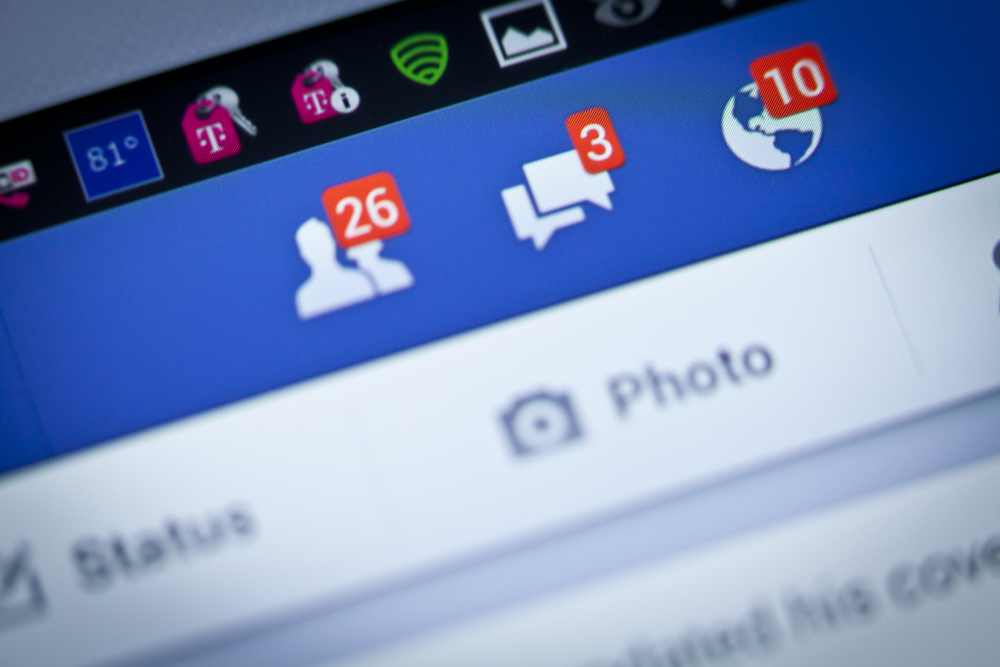News
Fmr Facebook Pres Slams Social Media for ‘Seeking to Consume All Your Conscious Attention’
Facebook is under fire from former company president, Sean Parker, who now warns the platform was created to “consume” your “conscious attention.”

A man who reaped the heft of his $2.6 billion fortune as the founding president of Facebook now considers himself “something of a conscientious objector” to social media, warning of use of the ever-present platform deleterious psychological effects on developing minds.
Sean Parker, also the co-founder of Napster, told Axios social media applications such as Facebook were crafted with a singular, overarching goal, evoked by the question,
“How do we consume as much of your time and conscious attention as possible?”
Castigating the very social media platform he helped create, Parker asserted Facebook continues “exploiting a vulnerability in human psychology” through “a little dopamine hit every once in awhile” delivered with each like, comment, and share.
Indeed, it was the addictive rush of receiving those interactions and returning to seek more — what Parker termed a “social-validation feedback loop” — which convinced Facebook’s creators the platform would effortlessly ensnare avid users.
“I had these people who would come up to me and they would say, ‘I’m not on social media,’” recalled Parker, whom Justin Timberlake portrayed in the 2010 smash hit, The Social Network, for Axios in an interview Wednesday. “And I would say, ‘OK. You know, you will be.’ And then they would say, ‘No, no, no. I value my real-life interactions. I value the moment. I value presence. I value intimacy.’ And I would say, ‘Well, you’re a conscientious objector, you don’t have to participate, but, you know, we’ll get you eventually.’”
Given an announcement from Facebook co-founder and CEO Mark Zuckerberg in June the gargantuan platform exceeds an astonishing two billion active monthly users, it would appear — to his candid regret — Parker’s gentle chiding proved ridiculously if alarmingly accurate.
“I don’t know if I really understood the consequences of what I was saying,” he observed, “because the unintended consequences of a network when it grows to a billion or 2 billion people and … it literally changes your relationship with society, with each other … It probably interferes with productivity in weird ways.”
He added, “God only knows what it’s doing to our children’s brains.”
In fact, experts in mental health cite social media in multiple studies as fueling an astronomical explosion in anxiety, depression, and loneliness among young people — as well as for plummeting youth self-esteem.
Critics might instinctively question the choice to remain a user of social media, but, experts caution, the matter isn’t necessarily cut and dry. As Dr. Graham C.L. Davey wrote for Psychology Today in December 2016,
“There’s no shortage of evidence that loneliness, social anxiety and social isolation can cause excessive use of social networking sites in young people. For example, a study of university students in the UK found that real life social interaction was negatively associated with excessive use of Twitter, and loneliness was a significant factor that mediated this relationship, so it’s clear that many people use social networking sites in general to relieve themselves of their loneliness.
“Social anxiety and the need for social assurance are also associated with problematic use of Facebook to the point where Facebook use can become an addiction, and has even been shown to activate the same brain areas as addictive drugs such as cocaine! This addiction poses a threat to physical and psychological well-being and interferes with performance at school or work, and staying away from Facebook is viewed by users as an act of ‘self-sacrifice’ or a ‘detoxification’. So the vicious cycle is that loneliness and social anxiety generate use of social networking sites, but then problematic addiction to these sites itself causes further forms of anxiety and stress.”
As for boldly slamming Facebook to the world after working for its success, Parker felt the obligation to speak out the greater burden — and quipped that, after this event, Mark Zuckerberg would probably block his account.
(Image: Shutterstock)
Typos, corrections and/or news tips? Email us at Contact@TheMindUnleashed.com
